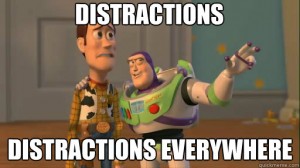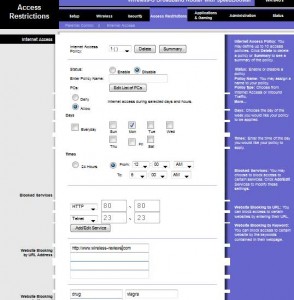Okay, maybe it’s better to say I have an overcommitment issue.
I describe myself as a mommy, writer, lawyer. Needless to say, each of those things is a full-time job. So, necessarily there are instances when the time required by each of them add up to more than 24 hours in a day. I’m in one of those periods right now. But I’ll end up waking up at midnight, carving four hour of work out of the night, and then napping for a few hours before I have to get up to feed the horses. In other words, I make it work until I fall down. Not the best strategy but it’s who I am.
There are a number of downsides to this very A-type personality trait. One of which is when other people fail to meet their commitments to me, it is a source of annoyance. But, that’s a different post. Balance is the issue.
Most of us haven’t reached the point in our writing careers when we can give up the day job and write full-time. Those who do write full-time often work on more than one project at a time. Oh, the luxury of only having one thing to work on at a time. But, reality is that life rarely is that simple. We juggle. Animals need to be fed. Kids need to be reminded to shower. They need to be taken to school, or sports, or a friend’s house. We need to meet work deadlines, and get new work. We need to write, and edit, and market our writing. And somewhere between managing our life, we need to live it.
There’s all sort of advise out there about how to fit writing into the rest of your life. You’ll often be told that we have to write every day. And that’s great. For when you can. I have a post on my blog about inching toward sucess – having low daily writing goals so I feel motivated to start every day. I was recently listening to Get-It-Done Guy’s podcast “How to Juggle Multiple Projects,” and realized his advise, as it often does, applied to many areas of my life.
So, how do I juggle? Sometimes very poorly. I do try to stay on top of my commitments so I can spent time with my family and honor all my other obligations. The following is what (mostly) works for me:
First, I follow the Get-It-Done Guy’s advise.: prioritize my “to-do” list.
Second, I focus on one task at a time. Have you ever walked around in a circle because your attention is being pulled in too many directions? I have. My kids think it’s funny. My husband knows to get out of my way because a melt-down is coming. We’ve been sold this idea of multi-tasking, but we really can’t work on more than one thing at a time. Multi-tasking is really serial attention focusing. Focus on one item and work on it until done, or until you reach its time allocation, see #3 below. I turn my e-mail alerts off and my phone to “do not disturb.” Because I’m not starting and stopping tasks, I generally can accomplish my goal for that session. Minimize distractions.
Third, I schedule my tasks by Time. I’ve been a lawyer long enough that I know that most routine matters will take a certain amount of time. If I need to write a memorandum that’s going to take 30 hours, I can break that time commitment up to 3 hours a day for ten business days. Because I’ve broken down my time allocation, I can start without feeling overwhelmed. It’s only three hours after all. The Get-It-Done Guy takes this one further and suggests putting the time blocks on your calender. For me, this doesn’t work because I see all the working “appointments” and die just a little. The blocks of time on my calendar become a wall I have to overcome and create more stress for me as I run “late” between tasks. But it might work for you.
My writing time is 9 pm to 11 pm. I’ll write when I can steal minutes (the Get-It Done Guy also has a great post on maximizing and using down time), but those two hours a night are my time. I write blog posts, edit, review other people’s stories and write in that window.
Fourth, I try to set realistic goals. My daily word count goal is only 250 words and amounts to about 15 minutes of time. Remember my two hour window? The 250 word goal means that on any day I can write, I’ll met the word-count goal. Because the goal is so easy to reach, I can beat back the need to sleep to get it done. After all, it’s only 15 minutes. The nights I write I average 750 words? What does this mean, it means I generally meet my weekly word goal (1,750 words per week). Writing isn’t a chore for me when I think about it in these terms and get to mark a check in my “goal completed” column. If you are the kind of person who needs the tangible reminder, go ahead and make a chart to show when you’ve met your goals. I use a word-count comment in my WIP so I can see I’ve met that day’s goal.
Fifth, deadlines are your friends, but unlike real friends you should manipulate them. There are some deadlines you must meet, and others that are aspirational. Use aspirational deadlines in advance of any hard one. If I’m writing for a November 1 submission deadline, I’ll have a September 15 completion deadline. Why? I’m very deadline motivated. I will push off matters with later deadlines to get to priority items. The aspirational deadline builds in a “catch-up” window. It also ensures I meet the “real” deadline without pulling an all nighter whenever possible.
Finally, I give myself a break. Not too long ago, I was in trial or other hearings nearly every day. Because my lawyer-ly matters were back-to-back my preparation time spilled out of normal office hours (7 am – 7pm – yea, I know – not so normal working times). I was at the office trying to get exhibits ready until 2am the morning before a trial. Needless to say, I didn’t write that night or any night that week. I forgave myself for missing and started in fresh with the new week.
For me balancing my family’s, writing’s and day job’s obligations is a constant dance. With some planning, I manage to limit the times I stumble. I hope a look at how I work to keep a balance between the important pieces of my life will help you do the same. For me, it’s time to have dinner with the kids.
Check out my newest release from Musa Publishing: Jack Gorman Got Cut By A Girl. Karma is a bitch, and Jack Gorman is about to find out how much.





